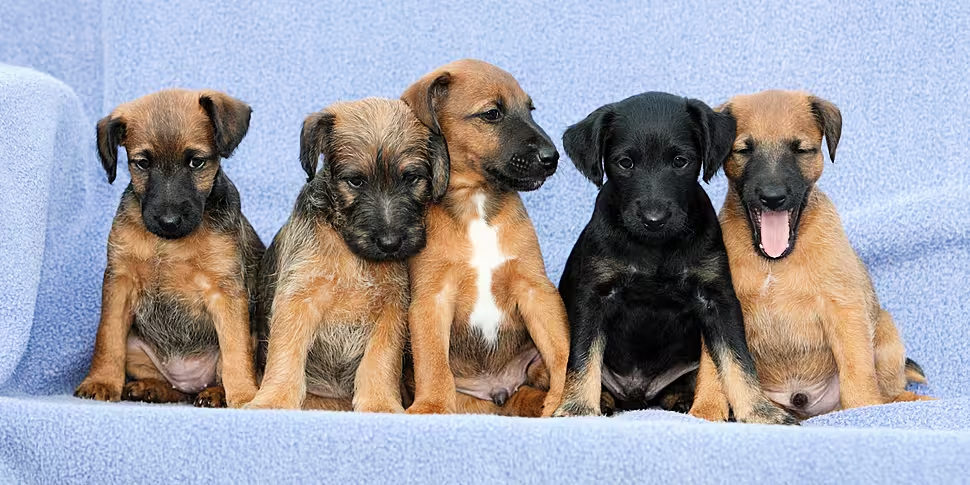One person can be looking after more than 150 dogs under existing legislation.
That's according to the Dogs Trust, who is addressing an Oireachtas committee about changes needed to the laws.
The Joint Committee on Agriculture, Food and the Marine is discussing dog breeding, microchipping and related matters.
It will also review the Dog Breeding Establishments Act 2010.
Corina Fitzsimons is communications manager with the Dogs Trust.
She told Lunchtime Live the numbers are far too high.
"The Dog Breeding Establishments Act was introduced and it was enacted in 2010.
"Basically what that does is if you have six or more female dogs, who are capable of producing puppies, you have to to register as a dog breeding establishment.
"However the law at the moment states the staff to dog ratio is one to 30 - so there could be one person looking after 30 female dogs.
"It doesn't take into consideration their puppies or any stud dogs.
"So technically, one person could be looking after over 150 dogs - and we don't think that's acceptable in this day and age from a welfare point of view".
She says other areas around transparency and accessibility to information also need to be examined.
"You'll often hear people saying 'If you're going to get a puppy, please do your research' - but that's very hard for people to do.
"If you want to find out if the person you're buying a dog from is a dog breeding establishment, with 200 or 300 dogs in their care, it's very hard to hard to find that information out.
"Only 50% of local authorities have that information available online.
"So we'd like a centralised database that any member of the public can just go on and see".
'Welfare of these dogs'
While vet Tim Kirby agrees that the legislation needs to be tighter.
"I think the take-home message, really for me, is that it's very very abnormal to have hundreds of dogs housed in one individual unit.
"So absolutely legislation needs to to be tightened up in certain areas on the actual numbers - and actually enforcing that legislation.
"But fundamentally from an ethical point of view... in the interests of the welfare of these dogs, it is abnormal to have them in these environments."
He says puppies have to be exposed to everyday events to be normalised dogs, and this is something puppies from large-scale industrial units don't get.
"They're not going to get socialisation that they absolutely need, that is absolutely critical from three weeks old up to 16 weeks old at least.
"Puppies need to be exposed to noises, different people, different sounds.
"That's how they become normal puppies and they know how to interact in everyday society."









